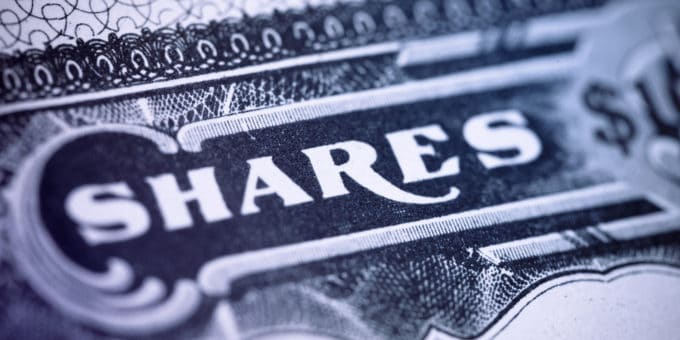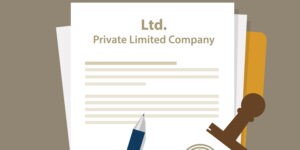When forming a company limited by shares, you must issue at least one share per shareholder. These shares determine how much of a company each shareholder owns and controls. But how do you decide how many shares to issue when forming a company? Is one share per person enough, or should you issue more? Let’s take a look.
Issue at least one share when forming a private limited company
Choosing how many shares to issue is one of the first decisions you must make when forming a company. In simple terms, the number of shares you issue when you set up a company primarily depends on how many shareholders the company has (or plans to have in the future).
If you’re going to be the sole shareholder and director of the company, you only need to issue (allot) one share to yourself. If the company will have more than one shareholder, you need to issue at least one share to each shareholder.
- A guide to company shares
- Company shares for startups
- A guide to transferring and issuing company shares
However, you have the option to issue more than one share per shareholder, either during or after the company formation process. This decision depends on how much flexibility you need. For example, perhaps you intend to:
- sell some of your shares in the future to bring in new business partners or raise capital to grow the business
- sell a portion of your shareholdings to your business partners when the company is more established
- transfer shares to your spouse or children
By issuing more shares than you require at the time of incorporation, you can transfer (by selling or gifting) some of them when the need arises. This is worth considering because the transfer of shares process is quicker and more straightforward than allotting new shares.
When forming a public limited company
Different rules apply to public limited companies (PLCs). When forming a PLC in the UK, there is a minimum allotted share capital requirement of £50,000 (or the prescribed euro equivalent). This is known as the “authorised minimum.”
A PLC must issue at least £50,000 of shares before it can do business or exercise its borrowing powers. For example, if the nominal value of a public company’s ordinary shares is £10 per share, it must issue at least 5,000 shares.
If a PLC reduces its share capital below £50,000, it no longer meets the minimum share capital requirement for a public limited company and must re-register as a private company.
This minimum share capital requirement also applies when a private company re-registers as a public limited company under Part 7 of the Companies Act.
Should I issue more than one share when forming a company?
If you’re forming a company on your own and don’t intend to bring in new shareholders at any point, issuing only one share to yourself is perfectly acceptable. This is standard practice in many small companies.
Issuing fewer shares keeps things simple, is easier to manage, and ensures your liability for company debts is kept to a minimum.
However, if you think you’ll sell or give away shares later, you should issue more when you set up your company. You will own them until the time comes to transfer them to new shareholders.
- Our All Inclusive Package - the perfect way to form a company
- A guide to UK company formation
- The pros and cons of share capital
Issuing shares in quantities of 10 is a popular option, while many companies choose to issue 100 or even 1000 shares. These quantities are preferable because they are easily divisible, which simplifies the task of varying different shareholders’ ownership percentages based on their levels of investment, control, or involvement in the business.
If you’re planning to sell shares to new investors in the future, issuing 100 or 1000 also gives you the flexibility to sell very small portions of the business (e.g. 1% or 0.5%) to multiple people. Whereas, by issuing only 10, the smallest share percentage you could sell would represent 10% of the company, which is a considerable amount.
Your shares determine your percentage of ownership
The ownership of a company limited by shares is divided into shares. Each share represents a portion (i.e. a percentage) of the company. Therefore, when you own a share, you own a percentage of the company.
Example 1:
- You form a company with one shareholder (you) and issue only one share
- That one share represents the whole company
- You own 100% of the company
Example 2:
- You form a company with one other person and issue 10 shares of equal value
- Each share represents 10% of the company
- You each take 5 shares
- You each own 50% of the company
Example 3:
- You form a company with three other people and issue 100 shares of equal value
- Each share represents 1% of the company
- You each take 25 shares
- You each own 25% of the company
Example 4:
- You form a company with 3 other people and issue 100 shares of equal value
- You contribute 70% of the startup capital; the other shareholders each contribute 10% of the startup capital
- To accurately reflect everyone’s contributions, you take 70 shares while the other shareholders take 10 shares each
- You own 70% of the company; the other shareholders each own 10% of the company
Every share you issue must be assigned a nominal value, usually £1. This is the sum that shareholders agree to pay for their shares at the time of their issue. The nominal value of your shares determines your ‘limited liability’. You must legally contribute this amount per share if the company becomes insolvent and can’t pay its debts.
Bear this in mind when choosing how many shares to issue. For example, if you issued 10,000 shares with a nominal value of £1, the shareholders would be collectively liable for up to £10,000 if the company could not pay its creditors. For this reason, it’s best to avoid issuing significantly more shares than you need.
Is there a maximum number of shares a company can issue?
Until 2009, a UK company limited by shares had to stipulate its authorised share capital in its memorandum of association. This was stated as a sum of money divided into a certain number of shares of a fixed value. For example, £100 divided into 100 shares of £1. This would be the maximum share capital the company could have at any given time.
However, following the introduction of the Companies Act 2006, there is no longer any such requirement. Companies are free to issue as many shares of any value as they wish unless their members choose to amend the articles of association to include authorised share capital.
This provision was mandatory under the Companies Act 1985 because, until 2009, Stamp Duty on shares was payable to HMRC upon forming a company. For this reason, many companies kept their authorised share capital to a reasonable sum, such as £100.
Stamp Duty on shares is now only payable when purchasing shares electronically or when the sale value of a share transfer transaction exceeds £1,000.
Can shares be held jointly?
With the exception of subscriber shares, it is possible for two or more people to co-own the same share(s). Joint shareholders are becoming increasingly common, particularly in Right to Manage or flat management companies.
There is no statutory restriction on joint shareholders. However, some companies may prohibit them under their articles of association or a shareholders’ agreement, or at least restrict the maximum number of shareholders who may jointly own shares.
Thanks for reading
Deciding how many shares to issue when forming a company (or at any time thereafter) can be tricky. There is no ideal number – it depends on your particular circumstances and the needs of the business. If you’re unsure, we recommend seeking professional guidance from an accountant or advisor.
Please note that the information provided in this article is for general informational purposes only and does not constitute legal, tax, or professional advice. While our aim is that the content is accurate and up to date, it should not be relied upon as a substitute for tailored advice from qualified professionals. We strongly recommend that you seek independent legal and tax advice specific to your circumstances before acting on any information contained in this article. We accept no responsibility or liability for any loss or damage that may result from your reliance on the information provided in this article. Use of the information contained in this article is entirely at your own risk.












Join The Discussion
Comments (4)
I build 10 million shares, me 6million and my brother 4million, each share is 1 pound, is will impact any thing in taxes because it is huge number?
Thank you for your kind comment, Hossam.
Unfortunately as we are not regulated to provide accountancy advice, we are unable to provide advice on specific scenarios. However we are not aware that the number of shares your company issues impacting taxes. We would recommend contacting an accountant for further assistance.
Please accept our apologies for any inconvenience caused.
Kind regards,
The 1st Formations Team
How many shares do I allocate to two shareholders when forming a company
Thank you for your kind enquiry.
This would depend on the nature of control between the two shareholders, and how many shares you wished to have within the company as a whole in the first instance.
If you wanted the shareholders to have equal control, you would need to give them an equal number of shares – e.g. 5 each.
If you wanted one of the shareholders to have more control over the other, you would need to provide the controlling shareholder with more shares than the other one.
With regards to how many shares you should issue in the company as a whole, please look at the blog article above.
We trust this information has been of use to you.
Kind regards,
The 1st Formations Team